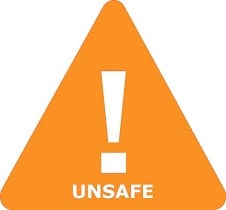Is Ipilimumab Safe in Breastfeeding
Question
I am a breastfeeding mother and i want to know if it is safe to use Ipilimumab? Is Ipilimumab safe for nursing mother and child? Does Ipilimumab extracts into breast milk? Does Ipilimumab has any long term or short term side effects on infants? Can Ipilimumab influence milk supply or can Ipilimumab decrease milk supply in lactating mothers?
Ipilimumab lactation summary

- DrLact safety Score for Ipilimumab is 5 out of 8 which is considered Unsafe as per our analyses.
- A safety Score of 5 indicates that usage of Ipilimumab may cause serious side effects in breastfed baby.
- Our study of different scientific research indicates that Ipilimumab may cause moderate to high side effects or may affect milk supply in lactating mother.
- Our suggestion is to use safer alternate options rather than using Ipilimumab .
- It is recommended to evaluate the advantage of not breastfeeding while using Ipilimumab Vs not using Ipilimumab And continue breastfeeding.
- While using Ipilimumab Its must to monitor child for possible reactions. It is also important to understand that side effects vary largely based on age of breastfed child and time of medication in addition to dosage.
- Score calculated using the DrLact safety Version 1.2 model, this score ranges from 0 to 8 and measures overall safety of drug in lactation. Scores are primarily calculated using publicly available case studies, research papers, other scientific journals and publically available data.
Answer by Dr. Ru: About Ipilimumab usage in lactation
G1K-immunoglobulin recombinant monoclonal antibody is indicated in certain cases of melanoma. Its high molecular weight explains the observed very low-excretion into breastmilk (Ross 2014). Its low oral bioavailability hinders the passage from ingested milk towards the infant’s plasma, except in preterm babies and immediate neonatal period, which may show an increased intestinal permeability. Although possibly safe during lactation, a long elimination half-life span (14.7 days) and its serious side effects (Beck 2006, Araujo 2015) make it necessary not to breastfeed until more data on this drug are available.The period for “washout" (obligatory time period for the drug to be completely eliminated from the body) that should be observed before resuming breastfeeding would be 74 days (5 times half-life period) after the last dose.A woman who nursed her infant after 21 days from the last dose (Ross 2014) did not report side effects in the infant.
Answer by DrLact: About Ipilimumab usage in lactation
The amount of ipilimumab in breastmilk appears to be very low, but it may increase with subsequent doses during a treatment cycle. Absorption from the infant's gastrointestinal tract is unknown. Because ipilimumab is a large protein molecule with a molecular weight of 148,000, absorption is unlikely after the first few weeks postpartum, and it will probably be destroyed in the infant's gastrointestinal tract. Until more data become available, ipilimumab should be used with caution during breastfeeding, especially while nursing a newborn or preterm infant. The manufacturer recommends that breastfeeding be discontinued during ipilimumab therapy and for 3 months after the last dose. Ipilimumab is a human immunoglobulin G1 (IgG1) kappa antibody. Holder pasteurization (62.5 degrees C for 30 minutes) decreases the concentration of endogenous immunoglobulin G by up to 79%.[1][2] A study of 67 colostrum samples that underwent Holder pasteurization found that IgG amounts decreased by 34 to 40%. Specific IgG subclasses decreased by different amounts, with IgG1 activity decreasing by about 37%.[3] None of the studies measured IgG activity.
Ipilimumab Side Effects in Breastfeeding
A woman with recurrent malignant melanoma was treated with ipilimumab 3 mg/kg intravenously over 90 minutes once every 3 weeks for 4 doses, beginning soon after delivery. She began breastfeeding 21 days after her 12 weeks of therapy was completed. At 30 weeks after treatment she was well, but no mention was made of the duration of breastfeeding or the health of her infant.[4]
Alternate Drugs
Ranibizumab(Safe)
Denosumab(Low Risk)
Infliximab(Safe)
Omalizumab(Low Risk)
Ipilimumab(Unsafe)
Rituximab(Low Risk)
Secukinumab(Low Risk)
Nivolumab(Unsafe)
Abciximab(Low Risk)
Bevacizumab(Low Risk)
Basiliximab(Low Risk)
Belimumab(Low Risk)
Natalizumab(Low Risk)
Brentuximab Vedotin(Low Risk)
Ustekinumab(Low Risk)
Trastuzumab(Unsafe)
Certolizumab Pegol(Safe)
Cetuximab(Unsafe)
Bleomycin(Dangerous)
Erlotinib(Unsafe)
Paclitaxel(Dangerous)
Doxorubicin(Dangerous)
Cladribine(Dangerous)
Imatinib(Unsafe)
Vinorelbine(Dangerous)
Cyclophosphamide(Dangerous)
Dacarbazine(Dangerous)
Cisplatin(Unsafe)
Azelaic Acid(Safe)
Fluorouracil(Dangerous)
Busulfan(Dangerous)
Alemtuzumab(Low Risk)
Thioguanine(Dangerous)
Ipilimumab(Unsafe)
Gemcitabine(Dangerous)
Rituximab(Low Risk)
Docetaxel(Dangerous)
Bevacizumab(Low Risk)
Dasatinib(Unsafe)
Vincristine(Dangerous)
Nilotinib(Unsafe)
Tamoxifen(Dangerous)
Mitoxantrone(Dangerous)
Dactinomycin(Dangerous)
Trastuzumab(Unsafe)
Nivolumab(Unsafe)
Pazopanib(Unsafe)
Mercaptopurine(Safe)
Cetuximab(Unsafe)
Letrozole(Dangerous)
Vinblastine(Dangerous)
Exemestane(Dangerous)
Hydroxyurea(Low Risk)
Carboplatin(Dangerous)
Etoposide(Dangerous)
Ipilimumab(Unsafe)
Nivolumab(Unsafe)
Ipilimumab(Unsafe)
Nivolumab(Unsafe)
Ipilimumab(Unsafe)
Glatiramer(Low Risk)
Nivolumab(Unsafe)
